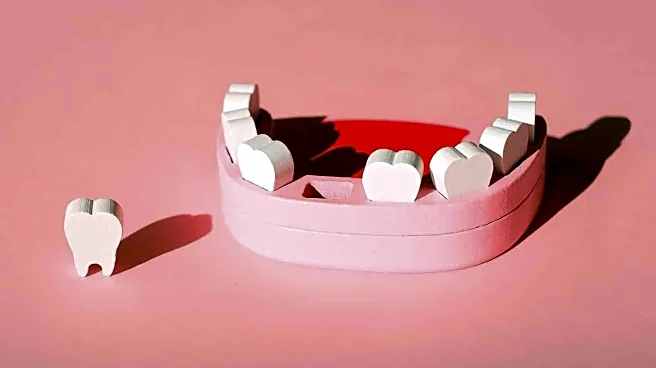What's Happening?
Researchers at the University of Nottingham have developed a gel that can repair and regenerate tooth enamel, potentially preventing cavities that require fillings. The gel utilizes chemicals found in saliva
to restore the hard, shiny layer of enamel on teeth. Enamel, which does not naturally regenerate, is crucial for protecting teeth from damage, acids, and bacteria. The gel contains a modified protein that mimics amelogenin, a protein that guides enamel growth in infants. Experiments have shown that the gel can create a thin, robust layer on teeth, promoting the growth of new enamel crystals. This development could significantly impact dental care by providing a new method to combat tooth decay.
Why It's Important?
The development of this gel is significant as it offers a potential solution to a common dental problem—cavities. Enamel degradation is a major cause of tooth decay, leading to painful cavities and the need for fillings. Current treatments only prevent further damage but do not restore enamel. This gel could revolutionize dental care by providing a method to regenerate enamel, reducing the need for invasive dental procedures. The broader impact on public health could be substantial, as improved dental health can lead to better overall health outcomes. Dental professionals and patients stand to benefit from this innovation, which could reduce healthcare costs and improve quality of life.
What's Next?
Clinical trials for the gel are scheduled to begin early next year. If successful, the gel could be available for dental use by the end of 2026. The research team, led by Alvaro Mata, has launched a company, Mintech-Bio, to commercialize the product. The dental industry and healthcare providers will likely monitor these developments closely, as the gel could become a standard treatment for preventing cavities. The success of the clinical trials will determine the gel's future in dental practices and its potential to become a widely used dental care product.











